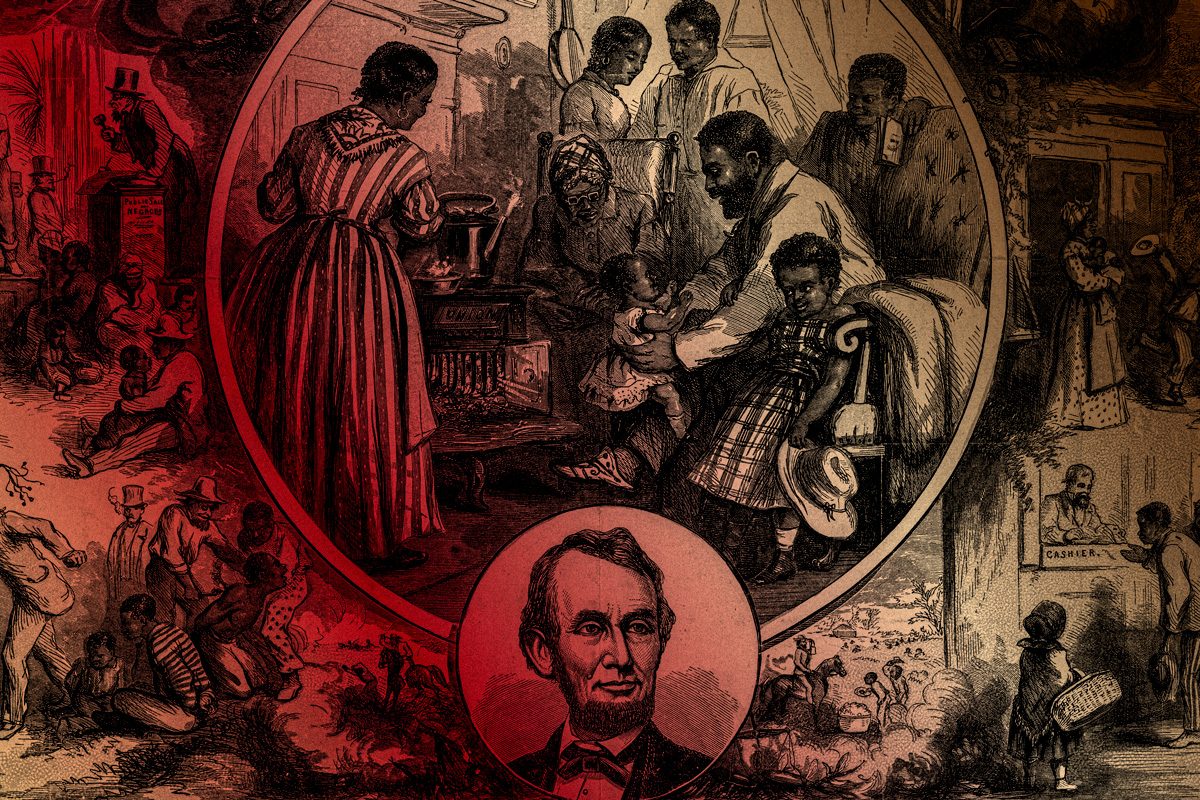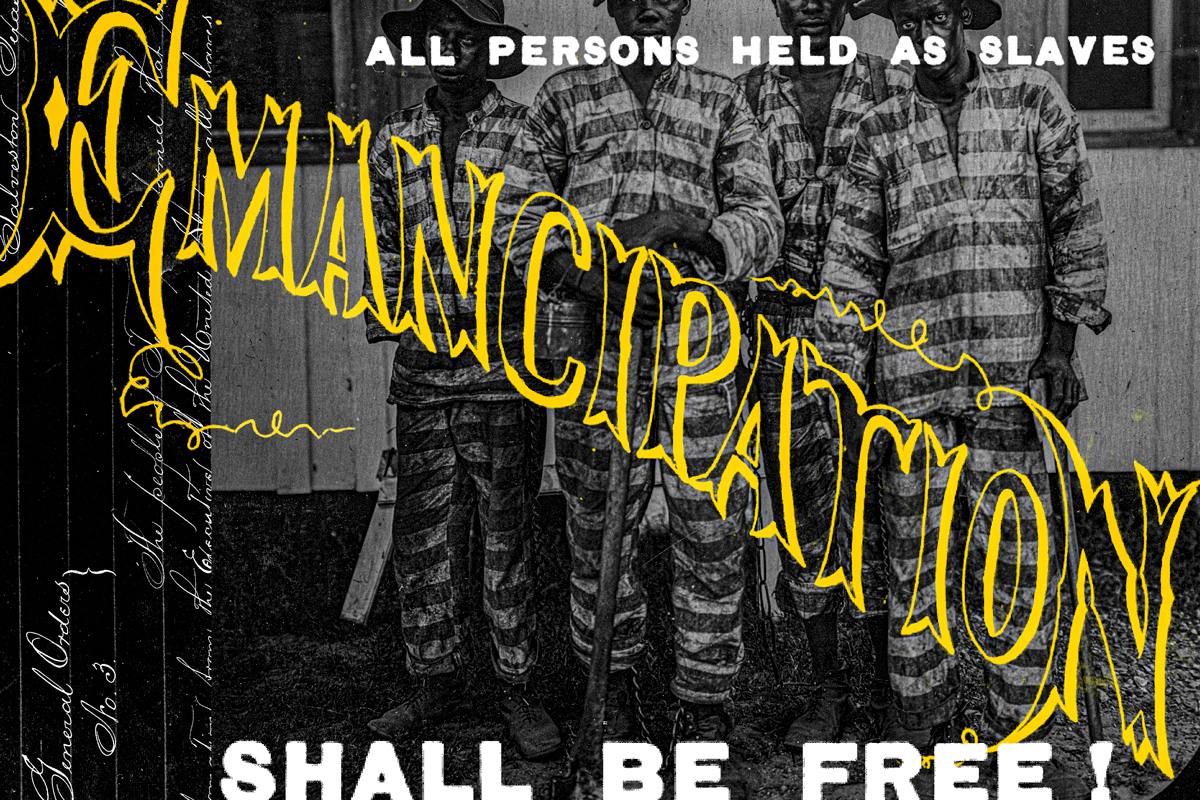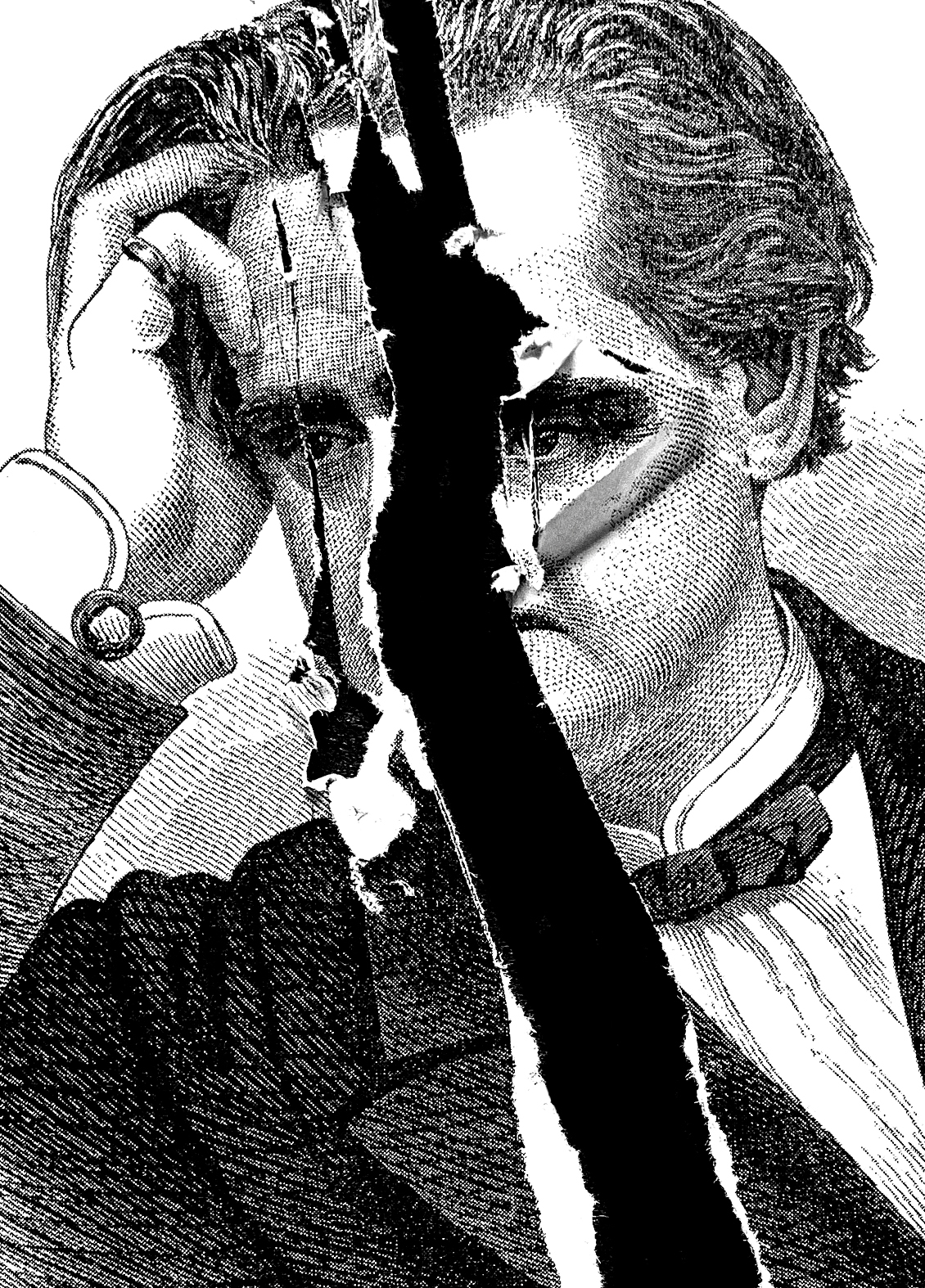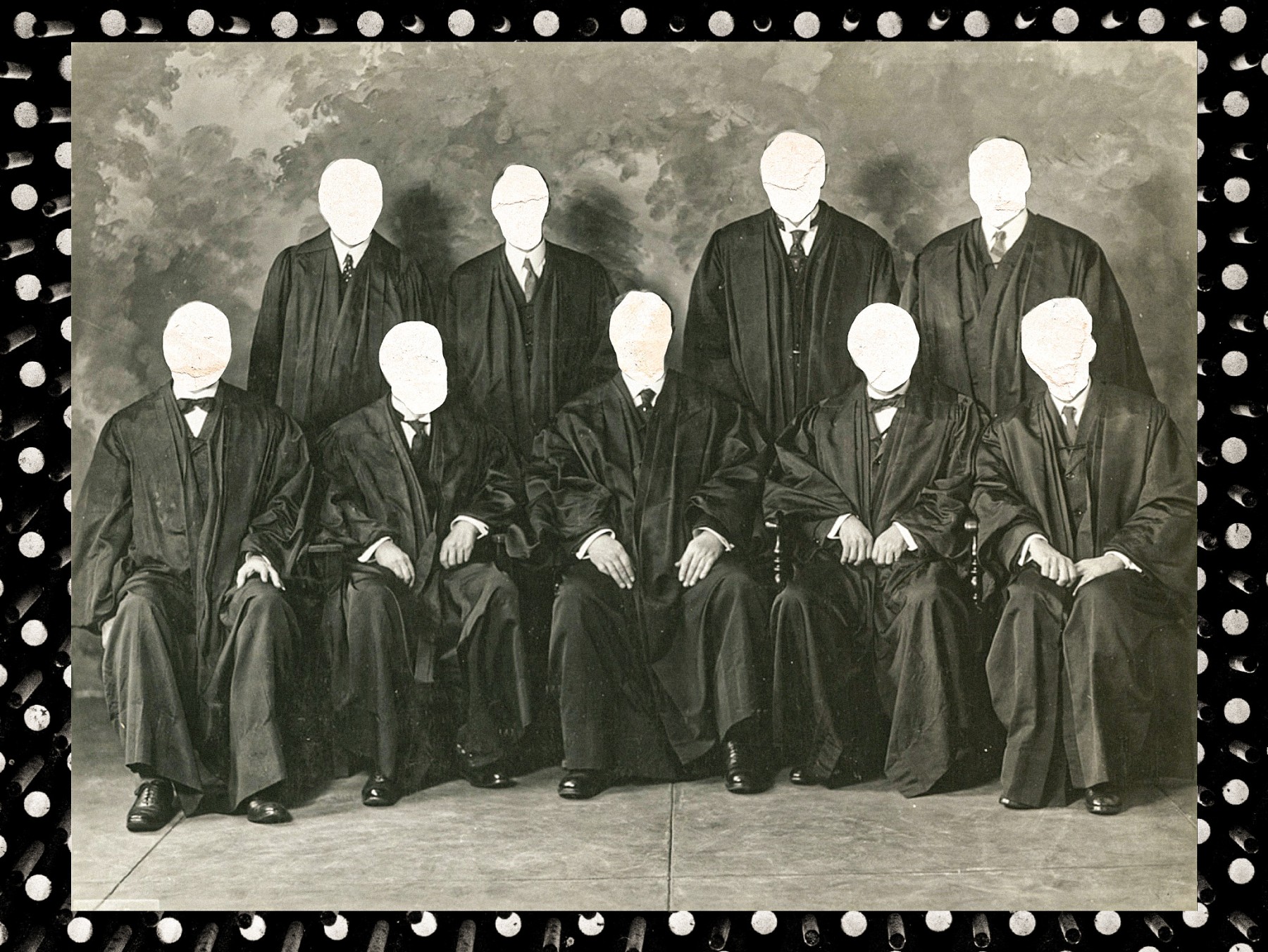The second year of Juneteenth, the new federal holiday commemorating the news of Emancipation reaching enslaved people in Texas, comes at a singularly fraught moment in the nation’s history. As the United States recognizes the formal abolition of chattel slavery in America, we are also confronting anew—via the historic congressional hearings on the origins of the insurrection at the U.S. Capitol on Jan. 6, 2021—how the many legacies of enslavement threaten once more to tear our country apart. Threats to our democracy and to racial inclusion have always been conjoined in our history—and now more than ever, the defenders of American democracy must acknowledge and act upon the convergence of the race crisis and the democracy crisis in the twenty-first century. Key to this effort is to see and resist the pressure typical of all emerging autocracies to permit only the glorifying narratives of the nation, burning books and repressing thinkers while weaponizing the resulting ignorance to steal power.
The signs of this convergence are everywhere, from the rolling statewide gag orders and book bans forbidding the teaching of our racial past in public schools to the recruitment of precinct-level and state election officials to undermine faith in the coming 2022 and 2024 elections. These backlash campaigns are gaining traction as illiteracy about our nation’s history obscures how the most insidious dimensions of the current crisis are grounded in our expressively racist and anti-democratic past.
An alarming illustration of the scope of this challenge is the deficient instruction that our schoolchildren are already receiving about the conditions that the holiday commemorates. According to the National Education Association, only 8 percent of students know that enslavement was the reason for the Civil War, and fewer still know that Reconstruction-era laws designed to fully integrate the former slaves into the democracy were violently overthrown by organized campaigns of terror, lies, and death. Many of the legal decisions that abetted the overthrow of Reconstruction remain good law to this very day.
These gaps in American education are jaw-dropping, not only because any real commitment to protecting our imperiled democracy would seem to require every effort to learn about this history, but also because we are currently in the throes of the opposite impulse. Worse than the casual ignorance that our educational systems permit about our inglorious past is the current use of law to bury discomforting truths about the fragility of our multiracial democracy. This move to weaponize historical ignorance systematically robs us of the ability to see the current threats clearly and to respond appropriately. The political consequences of this form of self-inflicted social amnesia are unfolding in real time as we mark the Juneteenth holiday while the House inquiry into the January 6 attempt to overthrow the government unfolds. Here we’ve witnessed anew the same twisted ideologies that recast treasonous efforts to overtake the government into acts of patriotism. In both the lead up to the Civil War and the ongoing threat to security we face today, violence has been framed as the natural bedfellow of the freedom to dominate, a legacy that was and continues to be an expression of white entitlement. The battle cries that drew our country into bloody battle in the past—“fight to protect our way of life” are echoed in January 6’s furious cries to “take our country back.” These racialized narratives of who this country is actually for have disfigured the prospects for democratic expansion for decades on end.
Last year’s enactment of the federal Juneteenth holiday might have served as a bulwark against this resurgent tide of white nationalism, bigotry, and antidemocratic reaction. The legislation instituting the holiday, after all, passed unanimously in the Senate, coming in the wake of the mass protests and racial reckoning spurred by the police murders of George Floyd, Breonna Taylor, Ahmaud Arbery, and other unarmed Black citizens. But any possibility that the national holiday might represent a line in the sand, a commitment to confront and address contemporary consequences of Reconstruction’s overthrow, was quickly laid to rest by the Senate’s monumental failures over the following year.
The same Senate that endorsed the Juneteenth holiday refused to pass the John R. Lewis Voting Rights Advancement Act, refused to pass the George Floyd Justice in Policing Act, and refused to pass the Domestic Terrorism Prevention Act of 2022 after 10 Black people were slaughtered by a teen-aged racist in Buffalo. It should, however, be of no great surprise that in the immediate aftermath of the massive, international Black Lives Matter protests in 2020—the largest protest against racial injustice in modern history—opponents of racial justice could effortlessly endorse a ceremonial celebration of the past while refusing to address its ongoing consequences. This grimly familiar political dynamic has re-appeared over and over again, as evident, for example, in the treatment of Martin Luther King Jr.’s legacy. The basic idea is to embrace the symbol of transformative justice while rejecting the race-conscious social-democratic agenda that the man behind the symbol actually advocated. This effort to reconcile the celebration of an ideal with conditions that bespeak its continuing denial were present in the earliest guidance from the MLK, Jr. Commission on the appropriate tone to be struck in commemorating the MLK, Jr. holiday. As commission members embraced the ironically entitled theme “Living the Dream,” organizers were cautioned against using the occasion to address contemporary conditions of inequality. (Perhaps the more accurate theme would have been “Ignoring the Nightmare.”)
The larger throughline seen in bromides about today’s holiday are unmistakable: a symbolic acknowledgement of Black freedom and civic equality has been, yet again, swamped by legislative obstruction that works to deny any substantive realization of the as- yet-unfulfilled promise of Juneteenth. In short, it seems the bipartisan consensus in Washington about how to address the nation’s ugly history of enslavement and the subsequent evolution of enslavement’s legacies is to circumscribe it all within the bounds of a single federal holiday. In this 24-hour interval, the nation can congratulate itself for pulling the knife half way out of the backs of African Americans. But as Malcolm X famously proclaimed: “If you stick a knife in my back nine inches and pull it out six inches, there’s no progress. If you pull it all the way out that’s not progress. Progress is healing the wound that the blow made. And they haven’t even pulled the knife out, much less heal the wound. They won’t even admit the knife is there.”
The daily business of our politics is increasingly taken up by the effort to ignore the knife in the back of Black America, even though the bloody weapon remains firmly lodged inside a gangrenous wound. It burrows more deeply, in fact, thanks to the many well-documented efforts to diminish the Black community’s access to the ballot, to ignore the growing threat of white nationalist terrorism, and to protect the legal entitlements that leave the George Floyds and Breonna Taylors of the nation continually vulnerable to lethal and unwarranted police actions.
Indeed, the bitter punchline here is that, in lieu of any sustained and serious effort to acknowledge and heal the wounds of anti-Black racism from public institutions, we have effectively consigned the observance of Juneteenth to the crass mercies of the American private sector. African Americans might not have reliable ballot access or be secured against racist teen-agers obliterating our elders with weapons of war, but America can be counted on to offer us Juneteenth-themed artifacts for purchase. We can’t buy our way into a sustainably inclusive multi-racial democracy, but we can be assured that products will appear on store shelves in time for the celebration.
The unconscionable ugliness of enslavement—which expressed both the institution’s inhumanity and the anti-Black ideology that normalized it—is thus safely banished to a distant past; an unfortunate but thankfully closed chapter in the nation’s heroic saga of self-redemption. According to the dictates of the many statewide bans on the mention of critical race theory, or any other discomfiting truth about our racial past in public school classrooms, white supremacy can be acknowledged only as an unfortunate condition–a minor birth defect that our nation heroically overcame once and for all with the abolition of slavery in 1863.
Should critics of such bans win the war over memory, the key plot points that remain available for public consumption will have nothing to do with the soul-crushing conditions that generations of African-descended people endured, nor the continued conditions of quasi-enslavement that persisted both immediately after emancipation and for decades afterward. No engagement with the racist ideologies that continue to distort our politics and public life can survive, for example, in Texas, the site of Juneteenth, where the State has instituted broad-ranging bans of texts in classrooms and school libraries that might prompt “discomfort, guilt, anguish, or any other form of psychological distress because of their race or sex or convey that a student, by virtue of their race or sex, is inherently racist sexist or oppressive, whether consciously or unconsciously”—a de facto license to censor any instruction that touches in any way on the painful truths of our racial past. Should the GOP succeed in once again taking over the federal government, these state bans like Texas may become national law, leaving only a shell of memory about Juneteenth past and contemporary significance.
The practice of burying the past in self-congratulatory celebrations that sidestep present conditions is nothing new in this country. Indeed, it’s pivotal to most of our dominant modes of self-understanding. Civil War commemorations have routinely ignored the principle of freedom and equal citizenship that Black soldiers gave their lives for; instead, such commemorations have centered on ceremonies that symbolize intraracial reunion among whites. African-American veterans were excluded from such observances for years.
In this vision of national redemption, reunion rather than reckoning reigns supreme, as ceremonial observances quiet the restless wronged and soothe the guilty souls. As long as the official observances studiously refrain from naming names or noticing the enduring legacies of slavery, apartheid and de facto segregation, neither the clear and present threats to our democracy nor the unraveling of the always contingent societal consensus around racial justice are being substantively challenged.
And yet today, African Americans like me will commemorate our long freedom journey, even as we remain well aware that among those who give lip service to this holiday are many who continue to fight us every other day to ensure that our progress will be interrupted and even reversed. Juneteenth, like most other ceremonial additions to our national mythology, occupies the odd sweet spot that offers something for everyone, but it leaves us facing the day after the celebration with the mandate of undertaking the long-overdue work of true racial reckoning.
Kimberlé Williams Crenshaw is the co-founder and executive director of the African American Policy Forum.



